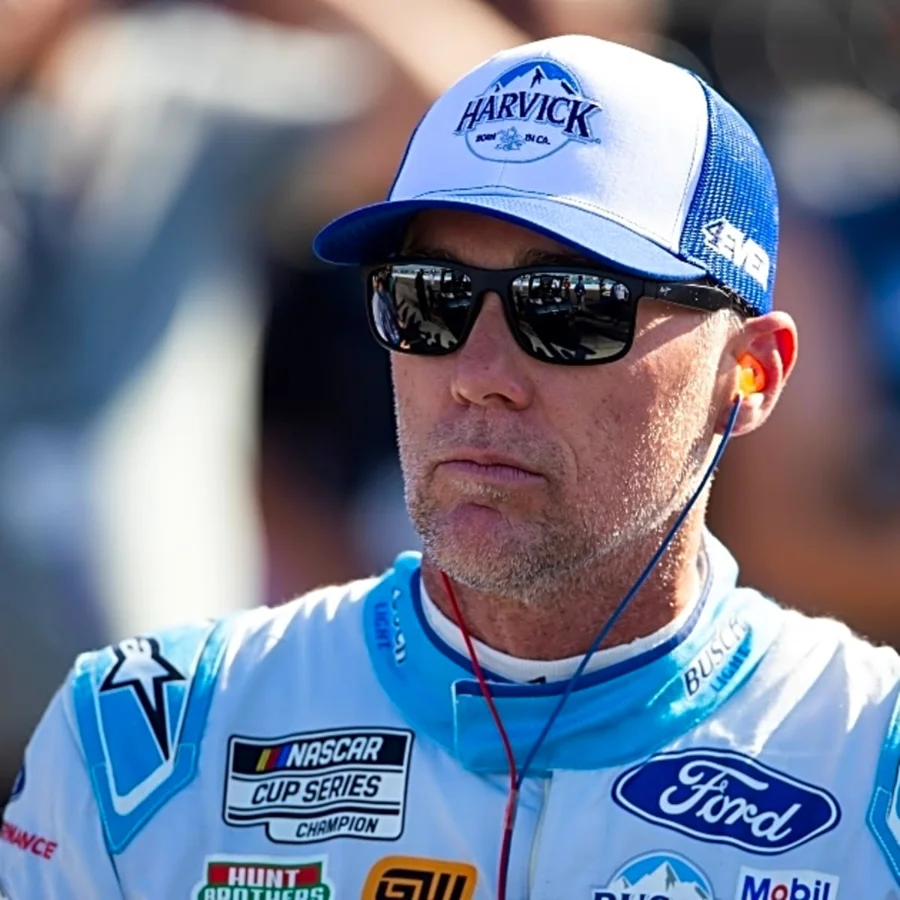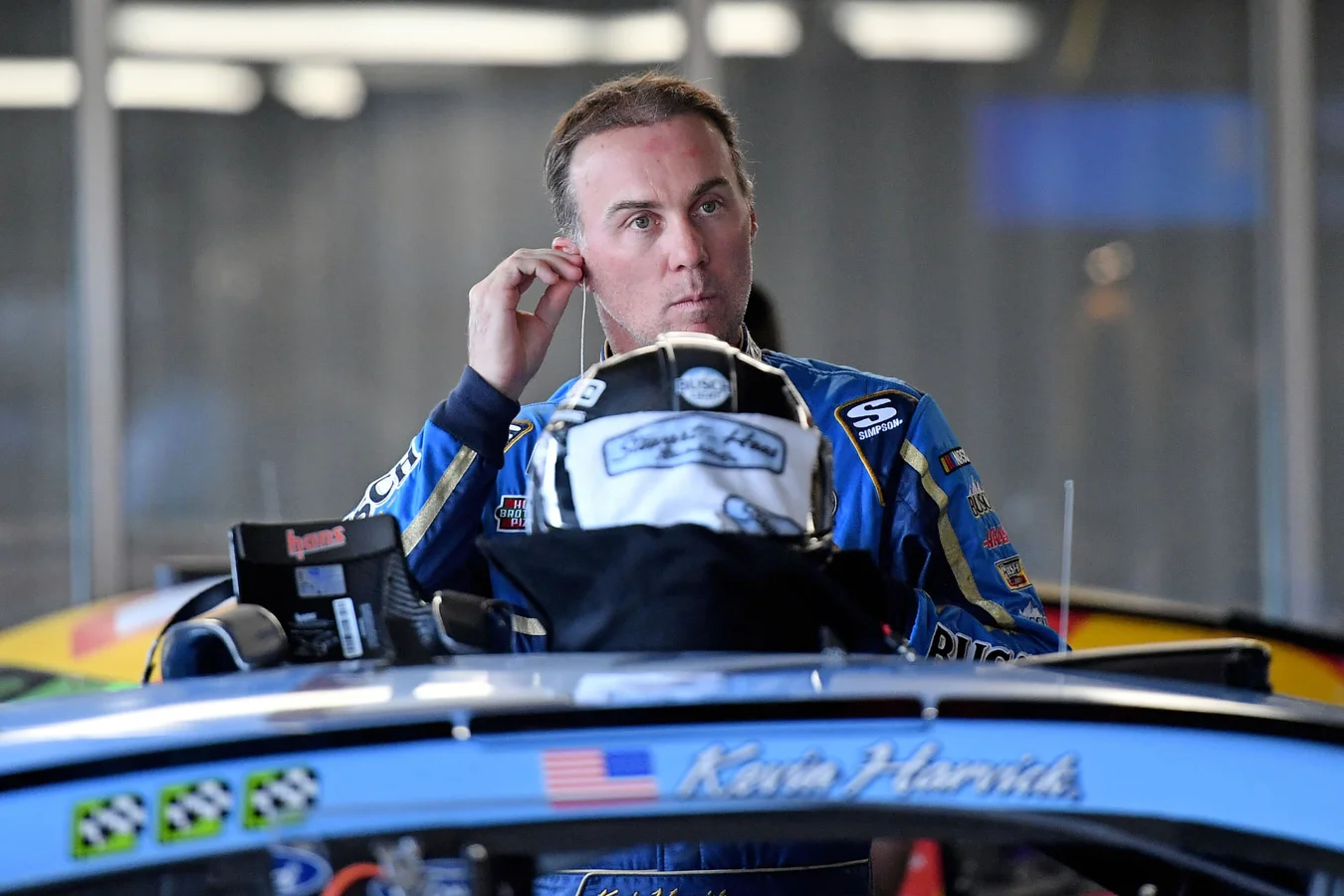Following the devastating loss of Dale Earnhardt in the final moments of the 2001 Daytona 500, NASCAR’s approach to creating and elevating new superstars shifted dramatically, according to Kevin Harvick. Speaking on his Happy Hour podcast, Harvick explained how the death of the seven-time NASCAR Cup Series champion forced the organization to reconsider its handling of driver personalities, dramatically impacting the formation of future stars—a central point in the ongoing Kevin Harvick NASCAR superstar policy debate.
During the two decades since Earnhardt’s passing, major names have made their mark on the sport, including Jimmie Johnson, Tony Stewart, Dale Earnhardt Jr., and Chase Elliott. Yet none have wielded influence over the sanctioning body’s decisions to the extent that Dale Earnhardt once did. Harvick suggests this is intentional, engineered to prevent overreliance on a single charismatic figure and to keep the fate of NASCAR from hinging on one superstar.
Deliberate Efforts to Avoid Another All-Powerful Figure
The aftermath of Earnhardt’s fatal crash saw a distinct reduction in the organizational sway held by individual drivers, particularly those with strong personalities and widespread fan bases. Harvick, whose own Cup Series career began after Senior’s passing, argued that leaders in stock car racing purposefully avoided nurturing a successor with Earnhardt’s level of power.

Yeah, they just don’t want you to. They don’t want you to embarrass them. I think they’re nervous about getting a relationship like they had with Dale Senior. Die and not be involved in the sport anymore. That was dependent upon so much for his opinion to be able to help them navigate the sport.
Kevin Harvick said via Happy Hour podcast.
Harvick’s insight reflects the unease felt by NASCAR’s sanctioning body in relation to powerful, independent voices. He lashes out at their strategy, implying an unwillingness to repeat the deep dependency previously placed on Earnhardt for guidance in critical matters.
“Dale Earnhardt was too strong for NASCAR.”- @Kenny_Wallace talks with @KevinHarvick about what’s changed in the sport’s personality and influence. pic.twitter.com/OMfoRbnmVj— HarvickHappyHour (@HarvickHappyPod) October 10, 2025
Kenny Wallace echoed these sentiments, describing Earnhardt’s impact on the sport as potentially overwhelming for NASCAR’s internal structure and culture. The concern, as Harvick and Wallace argue, is that extraordinary influence can cause instability if suddenly withdrawn—which was the harsh reality faced after Earnhardt’s death.
NASCAR’s Fairness Measures and the Unintended Decline of Iconic Personalities
In an attempt to avoid repeating the past, NASCAR strove to create an even playing field, giving every driver similar opportunities for stardom. However, Harvick contends that this well-meaning approach went too far and backfired. By failing to recognize the rarity and importance of legendary families such as the Earnhardts, Pettys, Wallaces, and Elliotts, the organization has inadvertently diminished the overall charisma and uniqueness within the sport.
Yeah, I think they went too far. You know, I think that in the end there’s only gonna be so many Dale Earnhardt Seniors, Dale Earnhardt Juniors, Rusty Wallace, Richard Petty, and the type of drivers that can help them navigate the sport, but they tried to make it fair for everybody. Yeah, and it’s just not fair. It is not fair. Not everybody in today’s world was Chase Elliott.
Kevin Harvick added.
This dilution of personality, Harvick asserts, has rendered the modern NASCAR landscape less compelling. While maintaining a sense of equality, it also led to a shortage of deeply engaging, larger-than-life drivers capable of captivating the public’s imagination and guiding the sport forward. The quest for fairness has, unintentionally, stunted the rise of icons analogous to Richard Petty, Rusty Wallace, or even Harvick himself.
The Strain of Family Legacies on Modern Racers
Transitioning from the policy itself, Harvick reflected on the crushing expectations placed on drivers like Dale Earnhardt Jr. and Chase Elliott, both sons of stock car legends. These racers shoulder a burdensome legacy in the eyes of fans, who often draw direct comparisons between them and their fathers. On the Happy Hour podcast, Kenny Wallace, also familiar with such pressures due to his brother Rusty Wallace’s fame, joined Harvick for this discussion.
Yeah, and it’s so difficult. You know, I look at Dale Jr., and Chase Elliott is having the same problem. Everything they do, the expectation is for them to be like their dad. Yeah, and it’s really hard to be yourself, right? Think about it from all the fans that say, “Hey, Rusty did this,” or “Why didn’t you do that?”
Kevin Harvick said.
Harvick’s words paint a vivid picture of how overwhelming it can be for these drivers. The perpetual comparison to Dale Earnhardt Seniors, Bill Elliott, or Rusty Wallace makes forging one’s own identity almost impossible under the intense scrutiny and hope of fans and media alike.
Fame, Privacy, and the Emotional Toll for NASCAR’s Stars
Alongside these extraordinary expectations, the fundamental lack of privacy brings emotional exhaustion for high-profile drivers. The immense popularity that comes with a famous last name makes leading a normal life nearly impossible. Kevin Harvick, who has observed Dale Earnhardt Jr.’s journey closely, emphasized the psychological costs associated with widespread recognition.
I mean, imagine that level. I feel sorry for Dale Jr. sometimes just because of the fact that he’s got a gun for that. I mean, what in the hell? How do you go anywhere? Because he is so freaking popular that you can’t actually go somewhere and have fun all the time.
Kevin Harvick added.
The constant spotlight, heavy fan expectations, and inability to step out of public view can make otherwise positive achievements become burdensome, as evidenced in Harvick’s raw illustration of the life that figures like Earnhardt Jr. are forced to lead. Chase Elliott faces comparable struggles, navigating overwhelming crowds every time he appears in public or at the track.
What This Means for NASCAR’s Present and Future
Harvick’s candid critique, shared in his conversation with Wallace, resonates with many fans and participants in the NASCAR world. The absence of dominant personalities and clear icons has left the sport searching for new direction and excitement. Modern stars, despite considerable sacrifice and constant evaluation under the public microscope, rarely achieve the all-encompassing appeal enjoyed by legends such as Dale Earnhardt.
The repercussions of the Kevin Harvick NASCAR superstar policy are profound and ongoing. As NASCAR continues to grapple with striking a balance between fairness and cultivating true icons, Harvick’s insights remind us what the racing community has lost—both in star power and emotional resonance. Until the sport finds another larger-than-life figure, or shifts its approach, the dominant presence once embodied by Dale Earnhardt may remain unique in the history of stock car racing.
“Dale Earnhardt was too strong for NASCAR.”- @Kenny_Wallace talks with @KevinHarvick about what’s changed in the sport’s personality and influence. pic.twitter.com/OMfoRbnmVj
— HarvickHappyHour (@HarvickHappyPod) October 10, 2025
